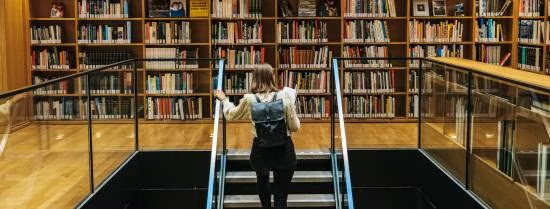In this interview, Dr. Ana Vasques and Dr. Yijing Wang discuss their CLI Fellowship projects and how they have merged their fields of expertise to come up with intercultural and interdisciplinary approaches to sustainability education.
Forming a team
Sustainability education is a broad and diverse subject matter, so naturally it makes sense to have professors from multiple faculties collaborating on such a topic. Yijing and Ana teach at different faculties- Yijing at ESHCC, and Ana at EUC. They attended a workshop together about teaching in an international setting. Through this the two of them, alongside Dr. Melodine Sommier, saw a thread connecting what they taught, their research, and their interest in sustainability.
Practical applications of sustainability education
After forming their team, they were awarded a CLI Fellowship, which helped them develop an interdisciplinary and intercultural Honours course focused on sustainable development. Their first research question focused on how different pedagogical approaches can affect students’ sustainability competences. The second research question was based on the learning diaries that students kept during the Honours course, to research the optimal setup and content of a class focused on sustainability. This study found that students considered small groups to be most impactful as they could dive deep in discussion about the content. Overall, the Honour course provided the students with a systematic method to examine the multi-layered notion of sustainability. This was done through the development of several sustainability-related competences, such as systems thinking, interdisciplinary work, critical thinking and analysis, and empathy and change of perspective.
In addition to the student aspect, Ana and Yijing have also worked together with Risbo to develop teaching materials based on the SDGs through TeachEUR. They were also tasked with developing a toolbox to help teachers at EUR implement sustainability into their courses. “The toolbox has activities that foster competencies for sustainability. These activities will be launched in TeachEUR and are comprised of interdisciplinary tools or methods that could be used by any discipline. An example is the iceberg model, which can be used to unravel underlying processes, structures and mindsets of a complex sustainability problem. We want this to be a collaborative platform, that lets teachers share their experiences and learn from one another.”, Yijing explains.
Sustainability at EUR
When it comes to sustainability education at EUR, both Ana and Yijing agree that there is a lot more to be done. Firstly, both are very passionate about sustainability and see it as the main challenge we are currently facing. They think there is still a lot more room for improvement in how sustainability is incorporated into course content at EUR. “We see that there would be demand for such a toolbox- from the students. We see students from all faculties, also those who participated in our Honours course, want sustainability to be a common feature in their courses.”, says Ana.
Another key feature Ana and Yijing wanted to feature in their projects was the bridge between intercultural and interdisciplinary education. For them these two concepts come hand in hand. The basis of their research was their Honours class, which is intercultural and interdisciplinary by nature. For a topic such as sustainability, they think it is necessary to have people from different backgrounds and disciplines to come together to find solutions.
Ana agrees. “I see intercultural and interdisciplinary projects as something that makes you step outside of your comfort zone. I think this is crucial, helping you find local solutions with global knowledge.”
In their research and in the toolbox they have developed, Ana and Yijing distinguish between mindsets and competences. From what they have found, mindsets are more general concepts. These relate to your beliefs and attitudes that you have from your background and environment that you grew up in. To distinguish from that, competences are specifically related to pedagogical tools related to someone’s education. Their course, and the content available in the toolbox, focuses on sustainability competences. These competences can also be more course specific than mindsets, which can lower the barriers teachers may have when trying to implement sustainability in their courses.
Through their Honours course, teachEUR and the sustainability toolbox, Ana and Yijing believe the sky is the limit for opportunities and methods to not only incorporate sustainability education in EUR courses, but to make it a priority. You can find out more about their project here.
"I met Ana and Yijing while we were developing a MicroLab on sustainability in education, they were passionately sharing their insights from the interdisciplinary Honours course and happy to share this with other teachers. It is very rewarding and motivating to work with such driven teachers. The toolbox (integrated in TeachEUR) is the result of the wish to create waves of impact: building a repository of impactful teaching activities for and with other teachers to include sustainability competencies in our education. I am very curious to see what activities and projects will be developed in the future but one thing is sure: Ana and Yijing will keep driving innovations in education to transform our society!"
Sascha Bol – Educational consultant & trainer at Risbo



